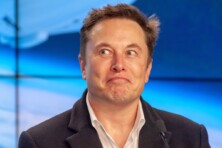Humanization of technology drives $339 billion brand value growth in second BrandZ top 75 most valuable global retail brands ranking

Top 10 most valuable global retail brands. Source: shutterstock.com
The second annual BrandZ Top 75 Most Valuable Global Retail Brands ranking and report – looking at luxury, apparel, retail and fast-food outlets – revealed the world’s most valuable retail brands are worth $339 billion more this year than last, a total of $1.4 trillion. The ranking combines rigorously analyzed market data from Bloomberg with extensive consumer insights from over 3.7 million consumers around the world, covering more than 166,000 different brands in over 50 markets.
|
Rank 2019 |
Brand |
Brand value 2019 ($bn) |
Category |
Rank 2018 |
| 1 | Amazon | 315.5 | Retail | 1 |
| 2 | Alibaba | 131.2 | Retail | 3 |
| 3 | McDonald’s | 130.4 | Fast Food | 2 |
| 4 | The Home Depot | 53.5 | Retail | 5 |
| 5 | Nike | 47.4 | Apparel | 7 |
| 6 | Louis Vuitton | 47.2 | Luxury | 6 |
| 7 | Starbucks | 45.9 | Fast Food | 4 |
| 8 | Chanel | 37.0 | Luxury | N/A |
| 9 | Walmart | 36.8 | Retail | 8 |
| 10 | Hermès | 31.0 | Luxury | 9 |
The world’s most valuable retail brand, Amazon ($315.5 billion), accounts for nearly a quarter (23%) of the total brand value of the Top 75.
Key trends highlighted in this year’s BrandZ Retail ranking include:
- McDonald’s continues to dominate fast-food – Despite slipping into third place in the retail ranking this year, having been overtaken by Alibaba, this global foodservice retailer is still the most valuable fast food brand in the world. It has successfully tapped into the growing demand for healthier food and packaging that’s better for the planet. Improving its delivery business, which includes a partnership Uber Eats, also helped the latter grow by +18% with a brand value of $130.4 billion.
- Levi’s enters the ranking – The legendary denim brand enters the retail ranking ahead of its IPO this year. After years of women choosing yoga pants over denim, Levi’s refocused positioning with women in the last few years which has led to strong growth in new markets including Italy and China. Levi’s brand value is $2.4 billion and enters at no.74.
- The democratization of luxury fashion results in the second fastest growing category – Luxury brands are becoming more relatable and responsible. Over the past five years, the 10 most valuable have improved their perceived social and environmental responsibility and idealism while strengthening their online experience. New business models for resale or rental of luxury items are adding an interesting touch of competition to the sector for the traditional heritage luxury brands. However, some of the main players have achieved substantial growth. Gucci (no. 11) for example has undergone a radical creative makeover, driven by a new Creative Director, boosting creativity and desire for the brand, particularly amongst Chinese millennials.
- Consumer consciousness about the environmental cost of fast fashion impacts retailers – Zara (-10% to $22.6 billion) and H&M (-39% to $6.4 billion) were impacted by rising concern about the cost of producing, transporting and selling disposable products.









